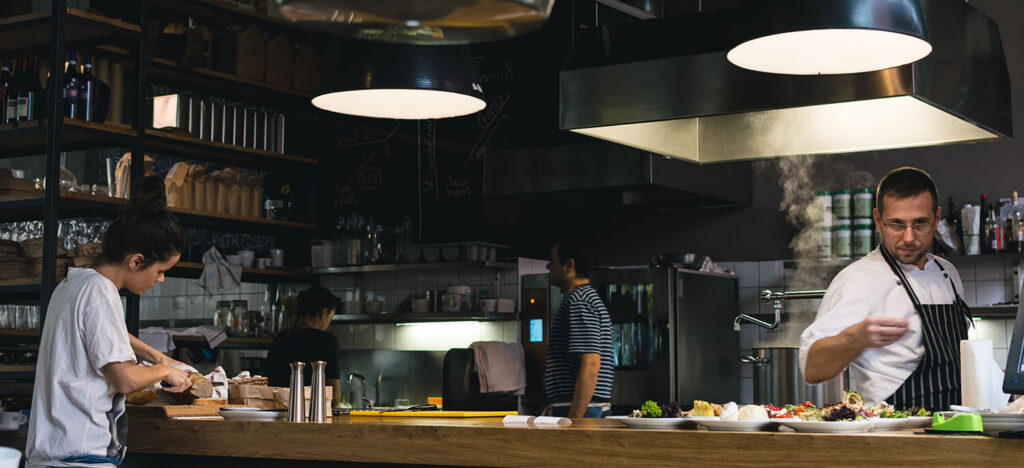Are you a food enthusiast with a discerning palate and a knack for articulating your culinary experiences? If so, a career as a food critic might be a perfect fit for you. Food critics play a vital role in the culinary industry, offering insightful reviews and recommendations to help diners make informed choices. However, becoming a successful food critic requires more than just a love for food and writing skills. It requires proper training and a deep understanding of the industry. In this article, we will explore the world of food critic training and provide you with valuable insights on how to master the art of food critique.
1. Develop Your Palate
The first step in food critic training is to develop your palate. A food critic must have a refined taste and the ability to distinguish flavors, textures, and aromas. Start by exploring different cuisines and ingredients, and pay attention to the details. Train your taste buds by trying new dishes, experimenting with flavors, and analyzing the components of each dish. Take notes of your observations and practice describing flavors and textures in a precise and evocative manner.
2. Enhance Your Culinary Knowledge
To become a respected food critic, it is essential to have a strong foundation in culinary knowledge. Familiarize yourself with various cooking techniques, ingredients, and culinary traditions. Read cookbooks, watch cooking shows, and attend culinary workshops to broaden your understanding of the culinary world. This knowledge will help you appreciate the craftsmanship behind each dish and provide valuable insights in your reviews.
3. Hone Your Writing Skills
Writing is a fundamental skill for any food critic. To effectively communicate your experiences, you must be able to write engaging and descriptive reviews. Practice writing regularly, and seek feedback from experienced writers or editors to improve your writing style. Pay attention to the structure, tone, and clarity of your writing. Develop your own voice and strive to create captivating narratives that transport readers to the dining table.
4. Study the Art of Critique
Critiquing is an art form that requires a balance of objectivity and subjectivity. Learn to analyze food objectively by assessing factors such as presentation, taste, texture, and execution. At the same time, embrace subjectivity by expressing your personal preferences and opinions. Study the works of renowned food critics to understand their approach to critique and gain inspiration for your own style.
5. Gain Practical Experience
One of the best ways to learn the intricacies of food critique is through practical experience. Seek opportunities to work in the culinary industry, such as internships or part-time jobs at restaurants, food magazines, or online publications. This hands-on experience will not only enhance your knowledge but also provide valuable networking opportunities and exposure to the industry.
6. Stay Updated with Food Trends
The culinary landscape is constantly evolving, with new trends, ingredients, and techniques emerging regularly. As a food critic, it is crucial to stay updated with the latest happenings in the food world. Follow food blogs, read industry publications, and attend culinary events to stay informed about the latest food trends. This knowledge will enable you to provide relevant and timely reviews that resonate with your audience.
7. Consider Food Critic Training Programs
While formal education is not a prerequisite for becoming a food critic, enrolling in specialized training programs can provide you with a competitive edge. Several reputable institutions offer courses in food writing, culinary arts, and restaurant management. For example, Yellowbrick offers an online course in partnership with top industry professionals to help aspiring food critics refine their skills and gain insider knowledge.
Conclusion
Food critic training is a multi-faceted journey that combines a passion for food, a refined palate, strong writing skills, and practical experience. By developing your palate, enhancing your culinary knowledge, honing your writing skills, and gaining practical experience, you can master the art of food critique.
Stay updated with food trends, study the works of renowned food critics, and consider specialized training programs to further enhance your skills. With dedication and perseverance, you can embark on a fulfilling career as a food critic and make your mark in the culinary world.
Key Takeaways:
- Develop your palate by exploring different cuisines and ingredients, and practice describing flavors and textures.
- Enhance your culinary knowledge by familiarizing yourself with cooking techniques, ingredients, and culinary traditions.
- Hone your writing skills by practicing regularly and seeking feedback to improve your style and create engaging reviews.
- Study the art of critique by analyzing food objectively while embracing your personal preferences and opinions.
- Gain practical experience through internships or part-time jobs in the culinary industry to enhance your knowledge and network.
- Stay updated with food trends by following blogs, reading industry publications, and attending culinary events.
- Consider specialized training programs, such as the online course offered by Yellowbrick, to gain a competitive edge and refine your skills as a food critic.
To further enhance your food critic training journey, consider enrolling in the NYU | Modern Journalism online course and certificate program. This program, offered in partnership with Yellowbrick, provides valuable insights and industry knowledge from top professionals in the field.
By combining your passion for food, refined palate, strong writing skills, and practical experience, you can embark on a fulfilling career as a food critic and make a mark in the culinary world. Start your journey today and unlock your potential as a renowned food critic.




